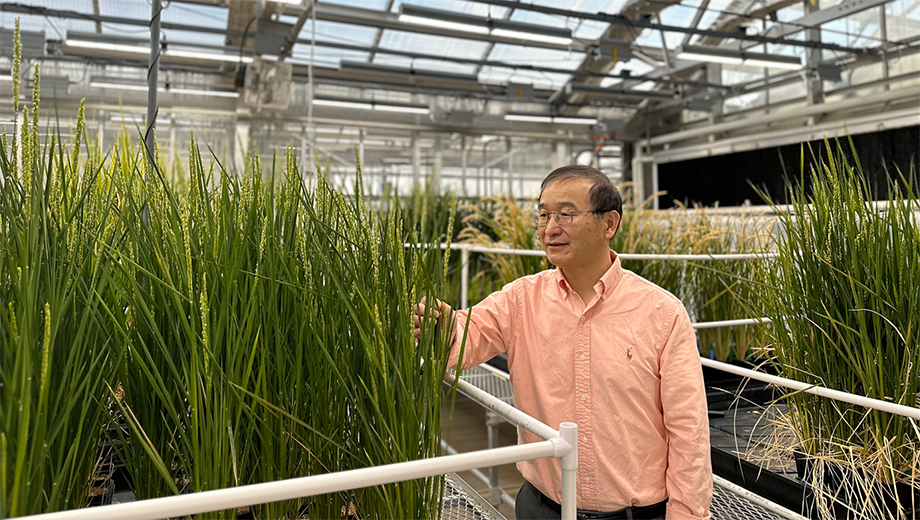
Bing Yang, director of MU's Plant Transformation Core, said it is one of only a few facilities in the U.S. that provide plant transformation services. Clients are from MU, other universities, the USDA Agricultural Research Service, nonprofit research institutions and industry. Photo by Elizabeth McNulty
For more than two decades, the University of Missouri’s Plant Transformation Advanced Research Core has provided services for scientists working to improve the human condition through both basic and applied research in plant biology.
“Plant transformation is a technology to transfer genetic materials (i.e., DNA) from one organism into the genome of a plant of interest,” said core director Bing Yang, a Bond Life Sciences Center researcher, professor of plant science and technology and a member of the Donald Danforth Plant Science Center. “Modifying plant genes and genomes through a transgenic approach helps scientists understand the function of certain genes and their relevance to agronomic traits leading to improved crop varieties.”
Housed at the Sears Plant Growth Facility in the College of Agriculture, Food and Natural Resources, the core is a key component of MU’s comprehensive plant research and development pipeline powered by Interdisciplinary Plant Group investigators and faculty extension specialists based on Missouri Agricultural Experiment Station farms across the state.
What is the core's role on campus?
We provide the personnel and expertise to routinely produce transgenic plants of different crop species, such as maize (corn), soybean, sorghum, rice and wheat, for research labs here and around the world.
Genetic modification through plant transformation is used in a wide range of scientific and applied research. Tissue culture and transformation is a prerequisite to apply genome editing technology to precisely produce stable and inheritable genetic changes associated with high yield, resistance to disease, tolerance to stress, nutrient production and other traits.
What are the core's research capabilities and services?
We provide fee-based services, including plant transformation, cloning, tissue culture, plant growth and molecular characterization services. Although many transformation activities are focused on maize, sorghum, rice and soybean plants, our facility is well equipped to accept new plant species and genotypes.
Which researchers can benefit the most from your services?
Those in basic and applied research in plant biology, genetics, plant breeding and biochemistry generally use our services the most.
How should researchers request services?
Plant Transformation Core personnel work closely to execute service contracts based on clients' needs and will help you determine the best way to do gene transfer or gene editing in plants of interest.
Email muptf@missouri.edu with your species, genotype and number of constructs. We will send you a service request form and pricing information.
For general information, please email Bing Yang.